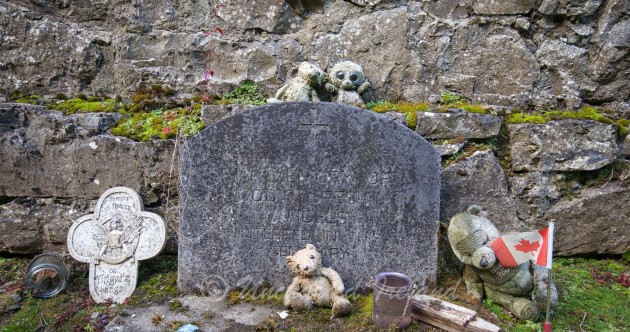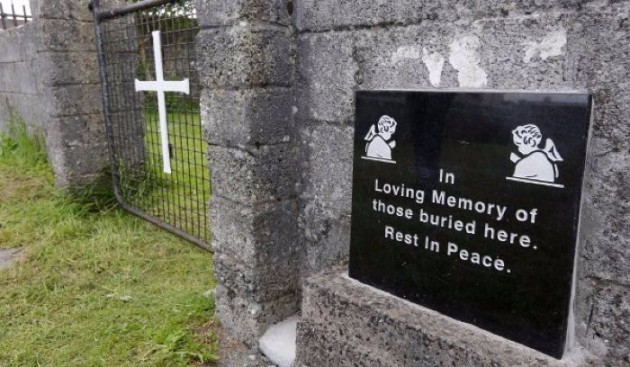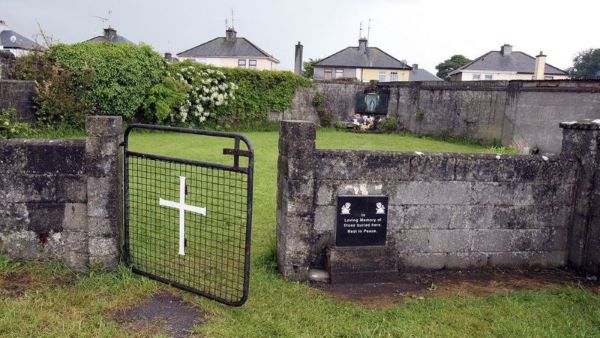
A harrowing part of Ireland’s history – we should have done better
We have a dark history of cover-ups in Ireland.
Survivors of Ireland’s mother and baby homes have been lied to in the past, countless times. Therefore, when it emerged that they may not be able to access the data gathered during the investigation into mother and baby homes, this must-have felt like another hard blow. However, this will hopefully not be the case.
This issue is legally quite complex, so we have summed it up. Here is what we know about the latest mother and baby home controversy.
To recap
The Commission of Investigation into Mother and Baby Homes was established to examine the treatment of women and children in fourteen mother and baby homes and four county homes between 1922 and 1998. The Commission was set up a response to claims that the remains of 800 babies lay in a mass grave at a home in Tuam, Co Galway. Human remains aged from 35 foetal weeks to three years were found in a vault at the site after excavations in 2016 and 2017. The enquiry comes to an end this month as the Commission is set to submit its final report to Roderic O’Gorman (the Minister for Children, Equality, Disability, Integration and Youth and Green Party TD) by the 30th of October.

Problematic legislation
Under the Commissions of Investigation Act 2004, records gathered during the investigation are required to be sealed for 30 years. On the 21st of October, a piece of the new legislation was passed through the Oireachtas, under which a database containing 60,000 records will be handed over to Tusla, the Child and Family Agency.
According to opposition TDs and advocates for survivors, this legislation was pushed through with haste and without the appropriate amount of scrutiny.
Minister O’Gorman stated that it was necessary to pass the bill before October 30th so that these records would not be sealed. However, several legal experts maintain that GDPR would have superseded the 2004 Act anyway, stopping records from being sealed.
Over the last week or so, this has been disputed by academics, government officials and advocates for survivors.
Anger and sadness have been expressed by many survivors when a question mark was put over whether they will be able to access their records with ease. Minister Roderic O’Gorman claimed that this legislation is necessary to ‘safeguard’ the records gathered and created by the Commission. However, many survivors disagree as the new legislation falls short when compared with GDPR, regarding the level of data access granted to survivors.
Even the very fact that their personal trauma is at the forefront of government debate and media scrutiny yet again, is causing pain.

Survivors should be put at the forefront of this issue. Period.
The Clann Project is a group that advocates on behalf of survivors and has facilitated the contribution of testimonials from survivors to the Commission. The group comprises of the Justice for Magdalene’s Research group and the Adoption Rights Alliance. The Clann Project outlined their fears regarding the legal approach to the Commission’s findings:
‘Under the Bill, some of the records gathered by the Commission (a ‘database and related records’ of women and children detained in 11 Mother and Baby Homes) will be given to TUSLA. The rest of the archive will go to the Minister for ‘sealing’. How is it acceptable to release some but not all of the records? TUSLA is not the appropriate recipient for any part of the Commission’s archive. It operates legally troubling and discriminatory practices, including defining adopted people’s birth name as third-party data and undertaking ‘risk assessments’ of all adopted people who request their records.’

Dr Maeve O’Rourke of the Clann Project has expressed the group’s opinion on how the 2004 Act should be interpreted and how the government should proceed from here.
‘The Commission and the Government should be applying the framework of the EU General Data Protection Regulation (GDPR), which gives individuals many rights in respect of their personal data, including the right to be informed, the right of access, the right to rectification, the right to erasure, and the right to object to data processing.’
Among other things, The Clann Project has called for the department to:
- To verify that GDPR applies to the records of the Commission of Investigation now and when it is given to the Minister
- To publish the comprehensive Finding Aid(s) to the Commission’s archive
Poor communication
Minister Roderic O'Gorman told the Seanad he was ‘deeply apologetic’ for the anguish caused to mother and baby home survivors. He admits that it was communicated poorly in his ‘haste to fix a legal problem’.
Roderic O'Gorman tells Seanad he is "deeply apologetic" for the anguish caused to mother and baby home survivors.
He says the records Bill is a "good law", but in his "haste to fix a legal problem", the communication was poor. #UnsealTheArchive pic.twitter.com/9sWRP6AlCw
— Órla Ryan (@orlaryan) October 23, 2020
All in all, the issues with accessing data caused by the 2004 Act should have been pre-empted to avoid the re-traumatisation of survivors. Any piece of legislation dealing with this deeply harrowing part of Ireland’s dark history should have been handled with propriety and delicacy to protect the brave individuals involved. As always, we stand with survivors and their families at this time.
Feature image by Uncharted Ireland





